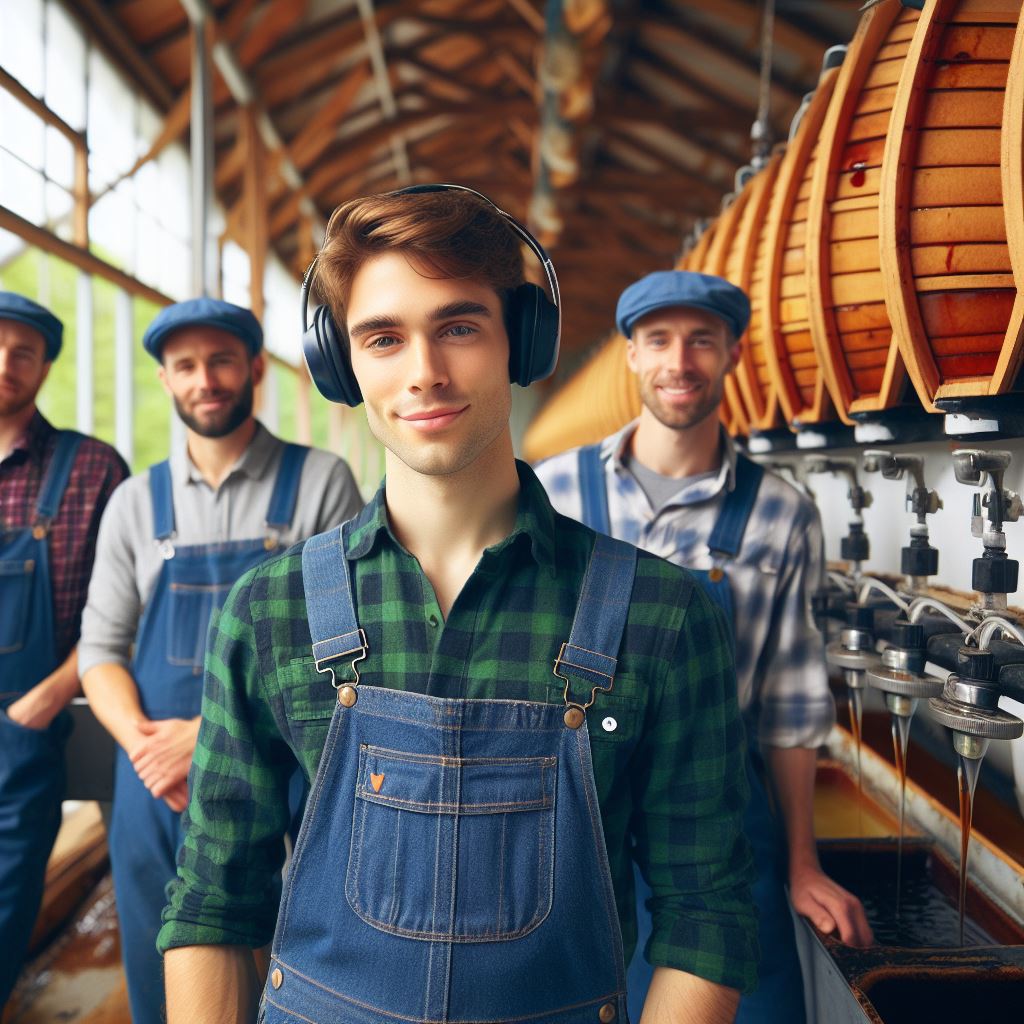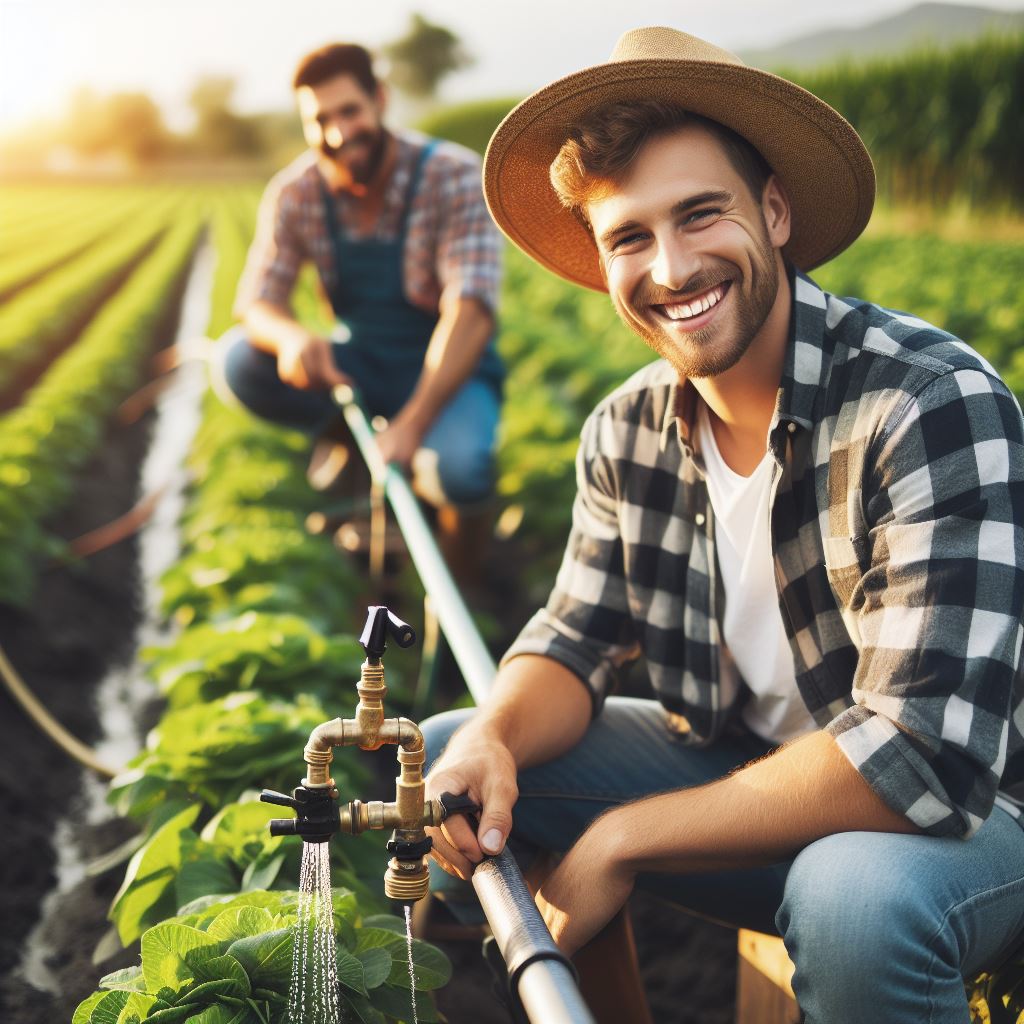Introduction
A. Overview of Vermont’s maple syrup industry
Vermont’s maple syrup industry is a significant part of the state’s economy.
With over 1,500 maple syrup producers, the state boasts the highest quality syrup production in the United States.
The industry employs innovative techniques such as tubing systems and vacuum pumps, enhancing efficiency and sustainability.
Maple sugaring season, a cherished annual event, attracts tourists and locals alike, showcasing Vermont’s commitment to preserving its natural heritage while supporting local economies.
B. Importance of maple syrup production in Vermont
Maple syrup production plays a crucial role in supporting Vermont’s agricultural sector.
Beyond being a lucrative industry, it embodies Vermont’s heritage and identity.
The process of tapping maple trees and boiling sap connects residents to their land and traditions.
Economically, it supports local businesses and tourism.
Environmentally, sustainable tapping practices promote forest health and biodiversity, highlighting the integral role of maple syrup production in Vermont’s past, present, and future.
History of Vermont Maple Syrup
A. Origins of maple syrup production in Vermont
Native Americans, specifically the Abenaki tribe, were the first to produce maple syrup in Vermont.
They used hollowed out logs to collect sap and heated stones to boil it down into syrup.
The Abenaki people cherished maple syrup as a valuable food source and also used it for trade.
B. Growth and development of the industry over the years
The production of maple syrup in Vermont traces its roots back to the 17th century when European settlers arrived, expanding the industry by adopting Native American sap collection and syrup production methods.
Growing demand accompanied Vermont’s increasing population, leading to enhanced production.
In the late 18th century, metal pots replaced hollowed logs, streamlining sap collection.
Transform Your Agribusiness
Unlock your farm's potential with expert advice tailored to your needs. Get actionable steps that drive real results.
Get StartedMaple syrup became a crucial component of Vermont’s economy, evolving into a primary income source for farms.
Technological advancements in the 19th and early 20th centuries further boosted the industry, with plastic tubing systems revolutionizing sap collection in the mid-20th century.
The Vermont Maple Sugar Maker’s Association, founded in 1893, standardized production and promoted quality.
Presently, Vermont dominates U.S. maple syrup production, comprising over 40% of the nation’s output.
The iconic syrup symbolizes Vermont, drawing global tourists to experience the state’s sugaring season.
Ongoing innovations, including modern technologies and eco-friendly practices, continue to shape and refine the maple syrup industry in Vermont.
In general, the history of maple syrup production in Vermont is rich and captivating, rooted in Native American traditions and adapted by European settlers.
The industry has grown and developed over the years, becoming a vital part of Vermont’s economy and identity.
With continuous advancements and a focus on sustainability, the future of Vermont maple syrup looks promising, ensuring that this sweet treat will continue to delight generations to come.
Sustainable Practices in Vermont Maple Syrup Production
A. Organic and sustainable farming methods used
Farmers in Vermont prioritize organic practices in maple syrup production.
They avoid the use of synthetic pesticides or fertilizers to protect the environment.
Organic farming promotes soil health, biodiversity, and the long-term sustainability of maple trees.
Sustainable methods include using natural pest control measures and managing soil fertility through composting.
These practices ensure the purity and quality of Vermont maple syrup while protecting the ecosystem.
B. Importance of forest stewardship and healthy tree growth
Sustainable maple syrup production relies on proper forest management and tree health.
Vermont farmers actively practice forest stewardship to maintain a balanced ecosystem.
They adopt sustainable tapping methods that do not harm the maple trees.
Regular inspections and care are provided to ensure tree growth, minimizing stress on the trees.
Maintaining a healthy tree population is crucial as it directly impacts maple syrup production.
C. Reduction of energy consumption and waste in production
Vermont syrup producers are committed to reducing energy consumption in the production process.
They employ energy-efficient technologies and equipment to minimize their environmental footprint.
Methods like reverse osmosis and evaporators with high energy efficiency help save energy.
Waste reduction practices include recycling, reusing, and repurposing materials to minimize waste generation.
Proper waste disposal and treatment systems are in place to reduce the impact on the environment.
Showcase Your Farming Business
Publish your professional farming services profile on our blog for a one-time fee of $200 and reach a dedicated audience of farmers and agribusiness owners.
Publish Your ProfileIn essence, sustainable practices are at the core of Vermont maple syrup production.
Organic farming methods, forest stewardship, and energy/waste reduction techniques ensure sustainability.
By prioritizing these practices, Vermont maple syrup producers contribute to the preservation of both nature and quality syrup.
Consumers can enjoy Vermont maple syrup with the knowledge that it is produced in an environmentally responsible manner.
Read: Arizona’s Desert Farming: An Eco Tale
Environmental Benefits of Vermont Maple Syrup Production
A. Preservation of forested land and biodiversity
Vermont’s maple syrup production relies on healthy and thriving forests, which are carefully managed and protected.
The practice of tapping maple trees for sap encourages the preservation of forested land.
Maple trees need to be mature and healthy to produce high-quality sap, which promotes the conservation of forests.
By maintaining forests, maple syrup production supports the preservation of biodiversity.
The diverse ecosystem within Vermont’s forests provides a habitat for various plant and animal species.
These forests support wildlife populations, including birds, squirrels, and other creatures that contribute to a healthy ecosystem.
B. Carbon sequestration and climate change mitigation
Maple trees are excellent carbon sinks, absorbing carbon dioxide from the atmosphere and storing it in their trunks.
Through photosynthesis, maple trees convert carbon dioxide into oxygen and store carbon in the form of wood.
As the maple syrup industry relies on healthy forests, it plays a crucial role in carbon sequestration.
Preserving and expanding Vermont’s maple forests can help alleviate the impacts of climate change.
By supporting the maple syrup industry, consumers contribute to reducing greenhouse gas emissions and mitigating climate change.
C. Natural resource conservation and water quality protection
The production of maple syrup in Vermont emphasizes sustainable practices that protect natural resources.
Maple syrup producers follow guidelines to ensure sustainable tapping methods and forest management.
These practices prevent over-tapping and promote the long-term health of maple trees and forests.
By preserving forests and following sustainable practices, maple syrup production helps protect water quality.
The forested lands act as natural filters, enhancing water quality and reducing pollutants in streams and rivers.
Protecting water quality is not only vital for maple syrup production but also for the overall well-being of communities and ecosystems.
In summary, Vermont’s maple syrup industry offers numerous environmental benefits. It supports the preservation of forested land and biodiversity by relying on healthy and carefully managed forests.
The industry contributes to carbon sequestration, playing an important role in mitigating climate change.
Additionally, maple syrup production promotes natural resource conservation and protects water quality, benefiting both ecosystems and communities.
By choosing Vermont maple syrup, consumers can support sustainable practices and contribute to a greener and healthier planet.
Read: New York Apple Orchard’s Green Shift

Economic Impact of Vermont Maple Syrup Production
A. Contribution to Vermont’s economy
- Vermont’s maple syrup industry contributes significantly to the state’s economy, generating millions of dollars annually.
- The production and sale of maple syrup support various businesses, from small-scale producers to large processing companies.
- The economic benefits extend beyond the maple syrup industry, as the tourism sector also benefits from maple-related activities.
B. Job creation and support for rural communities
- Maple syrup production provides employment opportunities for Vermont’s residents, particularly in rural areas.
- It supports a sustainable livelihood for local farmers and their families, helping to maintain thriving rural communities.
- Jobs in maple syrup production range from harvesting maple sap to processing and packaging, providing a diverse range of employment opportunities.
C. Market demand and export opportunities
- Vermont maple syrup is highly sought after both domestically and internationally, creating valuable export opportunities.
- The demand for natural and organic products has boosted the market for Vermont maple syrup, leading to increased production.
- Exporting Vermont maple syrup helps to promote the state’s unique agricultural heritage and raises its global profile.
- The revenue generated from maple syrup exports contributes to the overall economic growth of Vermont.
Overall, the economic impact of Vermont maple syrup production is significant, benefiting the state’s economy, creating jobs, supporting rural communities, and tapping into export opportunities.
The industry’s contribution extends beyond financial gains, fostering sustainability, promoting the state’s heritage, and attracting tourism, making Vermont maple syrup a sustainable and thriving story.
Read: Sustainable Rice Farming in Louisiana
Cultural Significance of Vermont Maple Syrup
A. Role of maple syrup in local traditions and festivals
Maple syrup plays a vital role in various local traditions and festivals in Vermont.
Every spring, the state celebrates the sugaring season with multiple events showcasing maple syrup.
From pancake breakfasts to sugarhouse tours, these festivities bring communities together.
Maple syrup serves as a key ingredient in traditional dishes enjoyed during these gatherings.
Families and friends gather to indulge in maple-infused treats and savor the local flavors.
B. Cultural heritage and identity tied to maple syrup production
Maple syrup production has a deep connection to Vermont’s cultural heritage and identity.
For generations, Vermonters have been involved in the art of sugaring, passing down traditions.
Maple syrup production has become an integral part of the state’s economic and cultural fabric.
Many families take pride in their maple syrup operations, preserving their heritage.
It is not just a source of income but a way of life and a symbol of Vermont’s legacy.
Showcase Your Farming Business
Publish your professional farming services profile on our blog for a one-time fee of $200 and reach a dedicated audience of farmers and agribusiness owners.
Publish Your ProfileC. Maple syrup as a symbol of Vermont’s agricultural heritage
Maple syrup stands as a symbol of Vermont’s rich agricultural heritage and natural abundance.
The state’s hilly landscape provides the perfect conditions for maple trees to thrive.
Vermont’s sugarbushes, adorned with tapped trees, create a picturesque and iconic scenery.
Maple syrup production represents the harmony between humans and nature that defines Vermont.
It embodies the state’s commitment to sustainable agricultural practices and environmental stewardship.
Ultimately, Vermont Maple Syrup’s cultural significance cannot be overstated.
It plays a crucial role in local traditions and festivals, bringing communities together.
The production of maple syrup is deeply rooted in Vermont’s cultural heritage and identity, passed down through generations.
It symbolizes the state’s agricultural legacy and showcases its commitment to sustainability.
Maple syrup is truly a beloved and iconic product that represents the pride and spirit of Vermont.
Future Challenges and Opportunities
A. Climate change impacts on maple syrup production
Changing weather patterns and increasing temperatures pose a significant threat to Vermont’s maple syrup industry.
Rising temperatures can shorten the tapping season, impacting the quantity and quality of syrup produced.
Erratic weather events, such as late frosts, can damage maple trees and reduce sap flow.
Maple tree health is at risk due to insect pests and diseases that thrive in warmer conditions.
The industry must adapt by exploring new technologies and practices to mitigate climate change effects.
B. Innovation and adaptation in the industry
Continuous research and development are crucial to finding sustainable solutions for maple syrup production.
Advancements in tapping methods, such as vacuum systems, have increased efficiency and sap yield.
Improved collection and storage techniques have reduced energy consumption and waste.
The use of advanced technology, like remote sensors, enables real-time monitoring of tree health and sap flow.
Collaboration among industry professionals, universities, and government agencies can drive innovation and adaptation efforts.
C. Potential for expansion and diversification
Vermont’s maple syrup industry has experienced steady growth over the years, signaling potential for expansion.
With increased consumer demand for natural and sustainable products, maple syrup holds a competitive advantage.
The industry can diversify by expanding product lines, such as maple candy, maple cream, and maple-infused beverages.
Exploring international markets, especially in Asia and Europe, presents an opportunity for future growth.
Investments in marketing and branding efforts can enhance the visibility and desirability of Vermont maple syrup worldwide.
All in all, while the Vermont maple syrup industry faces challenges such as climate change impacts, it also holds opportunities for innovation, adaptation, expansion, and diversification.
By addressing the effects of climate change, embracing technological advancements, and tapping into new markets, the industry can sustainably thrive in the future.
Read: Idaho Potato Grower’s Eco-friendly Tale
Conclusion
Vermont has showcased a truly sustainable story in the production of maple syrup.
It is important for consumers to support and consume local, sustainable products like Vermont maple syrup.
Supporting and consuming local, sustainable products like Vermont maple syrup is essential for fostering resilient communities and protecting the environment.
By choosing these products, consumers endorse responsible land management practices, support local economies, and reduce their carbon footprint.
Embracing such initiatives preserves traditional livelihoods, promotes biodiversity, and ensures a sustainable future for generations to come.
I urge readers to explore and appreciate Vermont’s maple syrup industry, recognizing its ecological significance.




